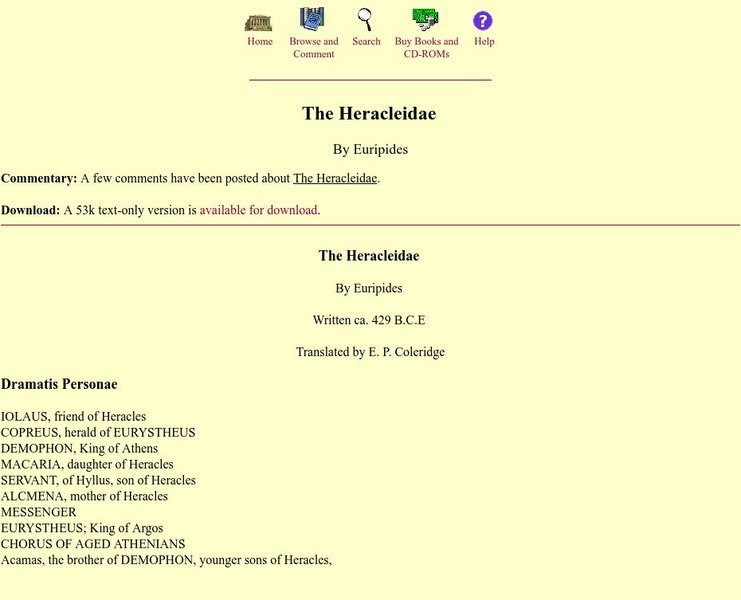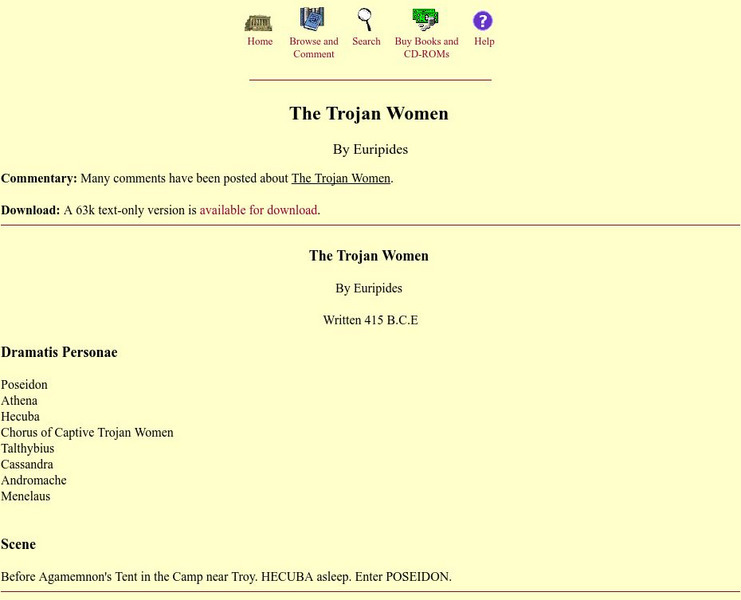Other
Theatre and Drama in Ancient Greece
Brief description of how societal traditions developed into theater in Ancient Greece. Includes well-known playwrights and plays as well as links to comprehensive information within and outside of the site.
Massachusetts Institute of Technology
Mit: Internet Classics Archive: Agamemnon, by Aeschylus
Aeschylus' famous play, Agamemnon, was written in 458 BCE. The full text available here provides an important perspective on the figure of Agmamemnon in ancient Greek culture.
Massachusetts Institute of Technology
Mit: Internet Classics Archive: The Heracleidae by Euripides
The whole play is available here from MIT's Internet Classic Archive.
Massachusetts Institute of Technology
Mit: Internet Classics Archive: Orestes by Euirpides
The Internet Classics Archive offers this full text version this story of revenge and the triumph of reason.
University of Adelaide
University of Adelaide: Hippolytus by Euripides
The text of Euripides' ancient play, Hippolytus, is offered at this clearly formatted site.
Other
Sophocles: The Man and His Plays
In addition to the usual biographical material and links to English translations of his plays, this includes a long discussion of "Oedipus the King," Sophocles' most famous work.
Other
Childdrama: Creative Drama Lesson Plans
Many lesson plans with ideas for teachers and learners, sorted by age and by type! Wonderful for thematic approaches.
Massachusetts Institute of Technology
Mit: Internet Classics Archive: The Persians by Aeschylus
This MIT Internet Classics Archives page is a translation of "The Persians" in an easy-to-read format, maintaining the verse format of the original.
Massachusetts Institute of Technology
Mit: Internet Classics Archive: The Trojan Women
This site is provided for by the Internet Classics Archive. Read the play, "The Trojan Women" in English, plus read and/or add comments, download the play, check out related websites, or recommend a related website.
New York University
Time Space in Classical Greece: The Poetics
A discussion of the beginnings of tragedy and the six necessary components of tragedy. Includes Aristotle's thoughts on tragedies.











